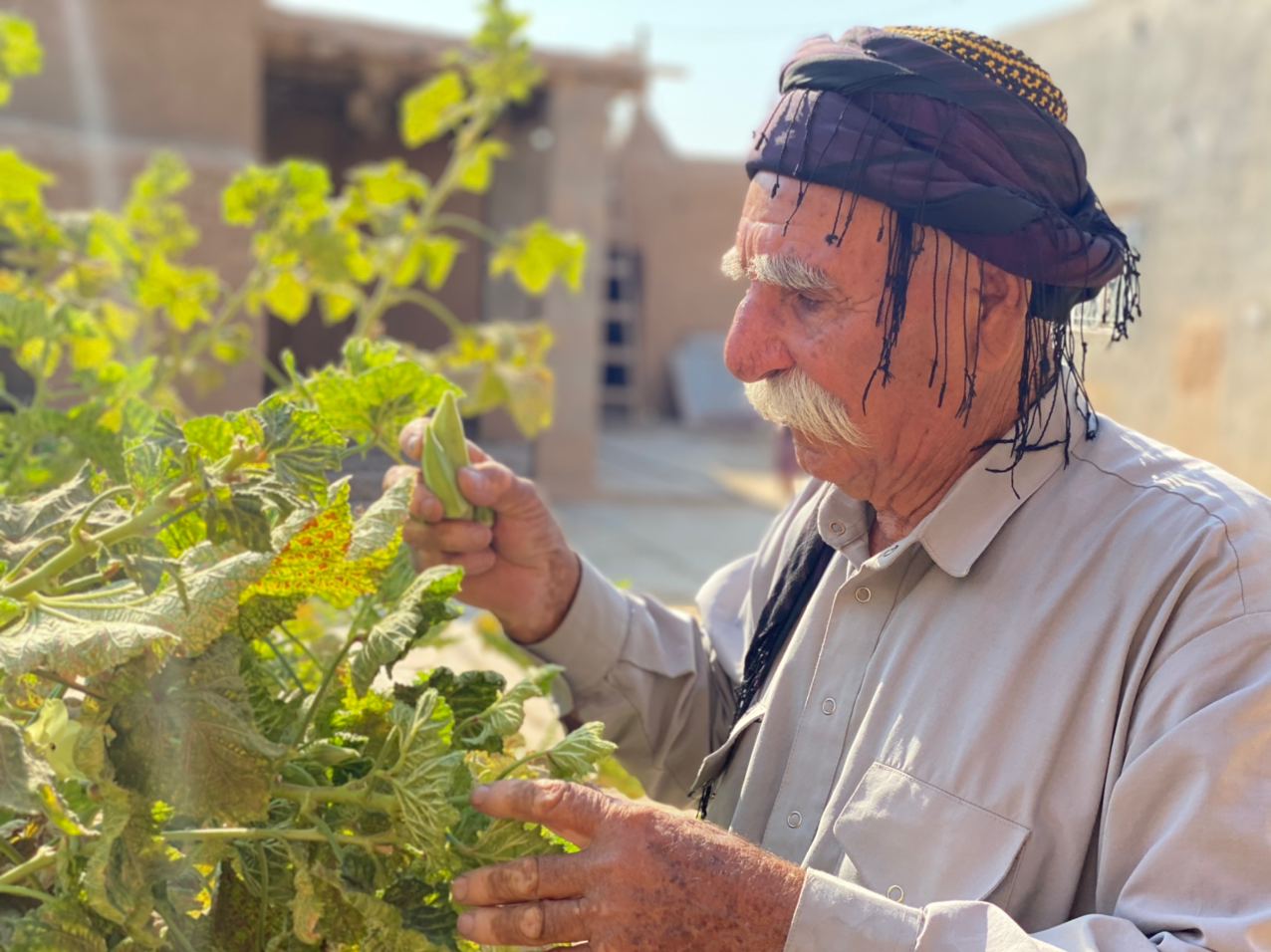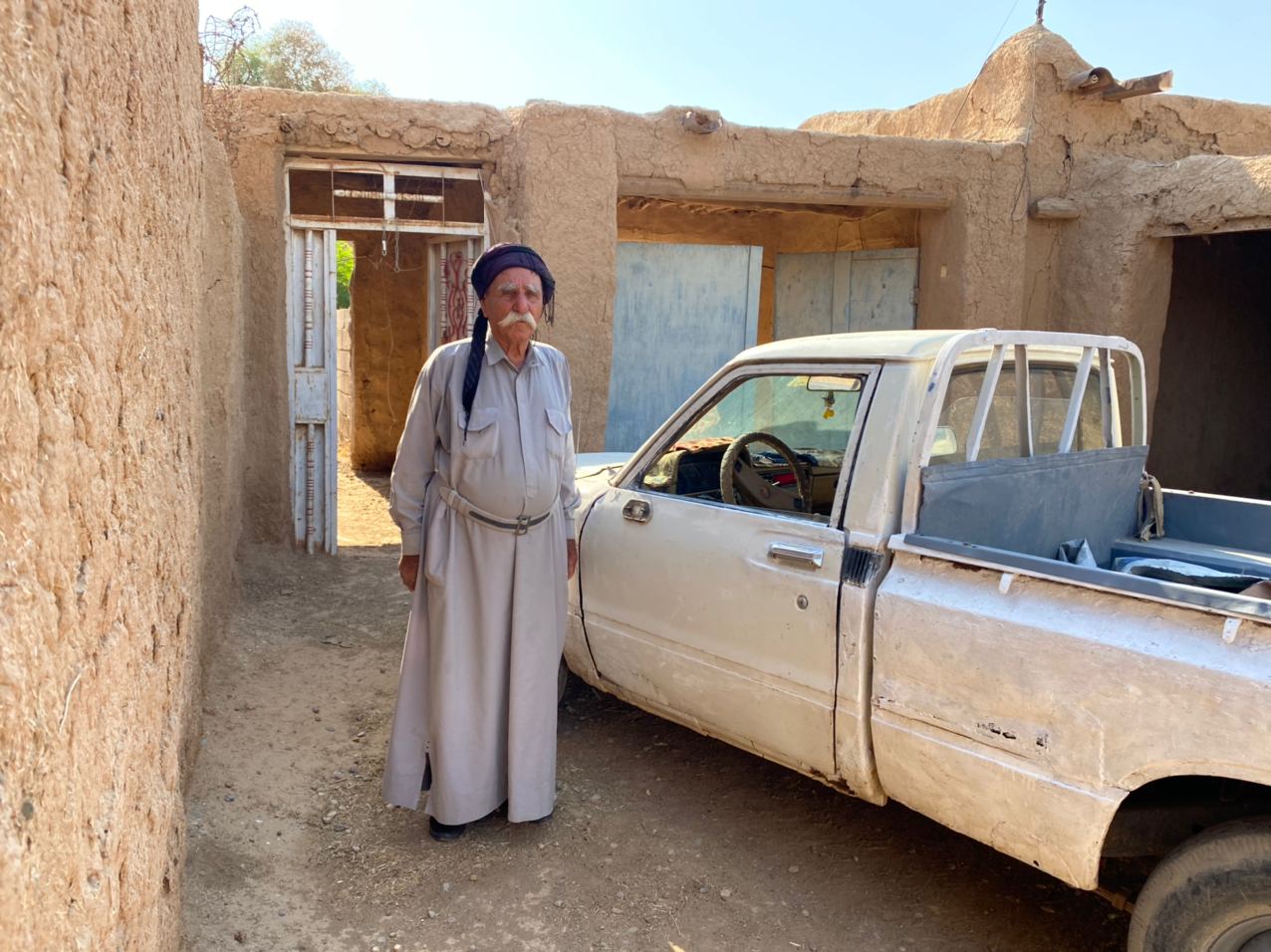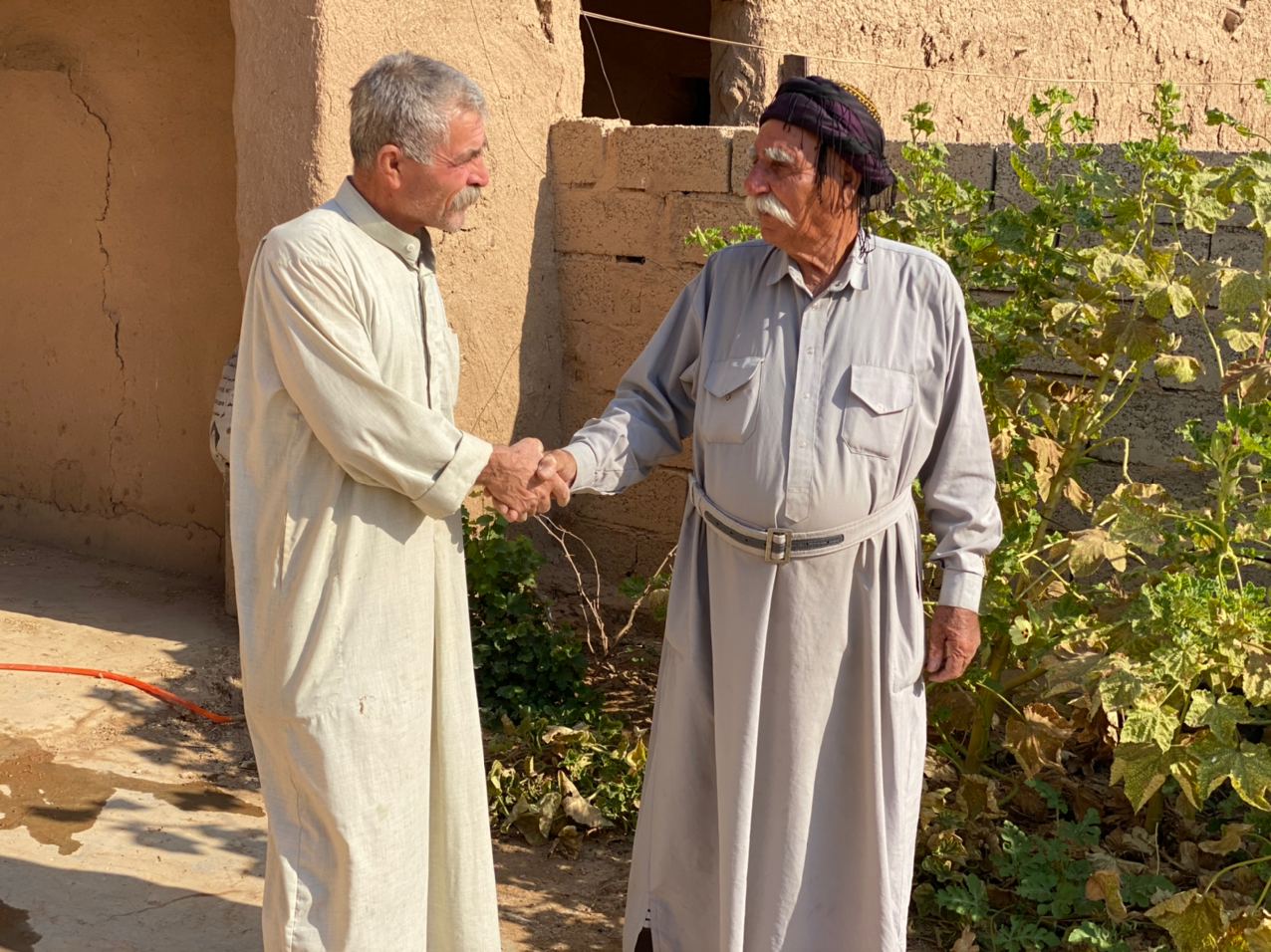
Everyday Ghalib wakes up early, wears his traditional attire after having breakfast, and drives towards his village in his decades-old car.
One can recognize the 81-year-old grey-haired man as a Kaka’i just by looking at his attire and his (also grey) long and thick moustache before he speaks in the distinctive dialect of Kurdish that his community is known for speaking in the region.
Ghalib Wali Muhammad speaks as passionately about his ancestral home region as a youth would about his or her love interest. He was compelled to leave his Zanqr several years ago.
“If I don’t visit my village each day and see my home, I get depressed and restless.”
He has been going back and forth for five years now. Each time he stays in his village for at least an hour before returning to urban life with a broken heart.
Ghalib and his family were displaced in 2015 and settled in the town of Daquq in a time when ISIS militants were on the verge of taking over the Kaka’i regions.
If I only walk for just an hour in the village on a daily basis, that means everything for me
“If I only walk for just an hour in the village on a daily basis, that means everything for me.”
It’s not just all of Ghalib’s childhood memories that keep taking him back to the village, but also his relatives and others of his age. Whenever he is there, many gather around him to listen to his talks and to reminisce together.

“During the pandemic and the curfew, I wasn’t able to visit my village; I was imprisoned at home. Being idle without visiting the village has made me feel depressed.”
He says he tried several times to go to his village during the curfew, but the security forces prevented him.
The distance between his home in Daquq and his village is about 30 km.
“I was tired of this situation, because I left my soul and my life behind in that village, and I am only physically in Daquq. Throughout my life I have never suffered so much sadness as in the several months during the Coronavirus.”
Throughout my life I have never suffered so much sadness as in the several months during the Coronavirus
He still pines to return to his village, but his children don’t let him return.
Ghalib’s wife died several years ago. He has eight daughters and one son. He currently lives with three of his daughters. The rest are married, and none of them live in the village.
“We can no longer return to the village, most of its inhabitants have been displaced. So, it will not return to what it was in the past when we lived together with our relatives. Otherwise, everyone desires to go back to their home,” said Nasreen (51 years old), one of Ghalib’s daughters.

Of 80 families that used to live in Zanqr, only seven remain.
“We were very worried about our father as he would travel back to the village every day. Because my two sisters and I would keep waiting for him to return. But we would not press him [not to go], and sometimes we would even accompany him in his trip to the village,” Nasreen added.
We were very worried about our father as he would travel back to the village every day
Ghalib’s inability to travel back to his village has also affected his daughters who have been worried about his state.
Among his fellow villagers, Ghalib is seen as an elder with great life experience, that’s why many gather around him whenever he sits to talk.
Saman Ibrahim (50 years old), who still lives in the village, says that they are happy with Ghalib’s visits to the village and that they love to hear him talk. They keep eying the road in anticipation of his old pick-up car coming towards the village.
As soon as the curfew was lifted, Ghalib resumed his daily visits to his beloved Zanqr.
If he is not ill or not impeded by something else, regardless of the time of the day, he gets into his old car and drives towards his home.
This article was originally published by KirkukNow.
